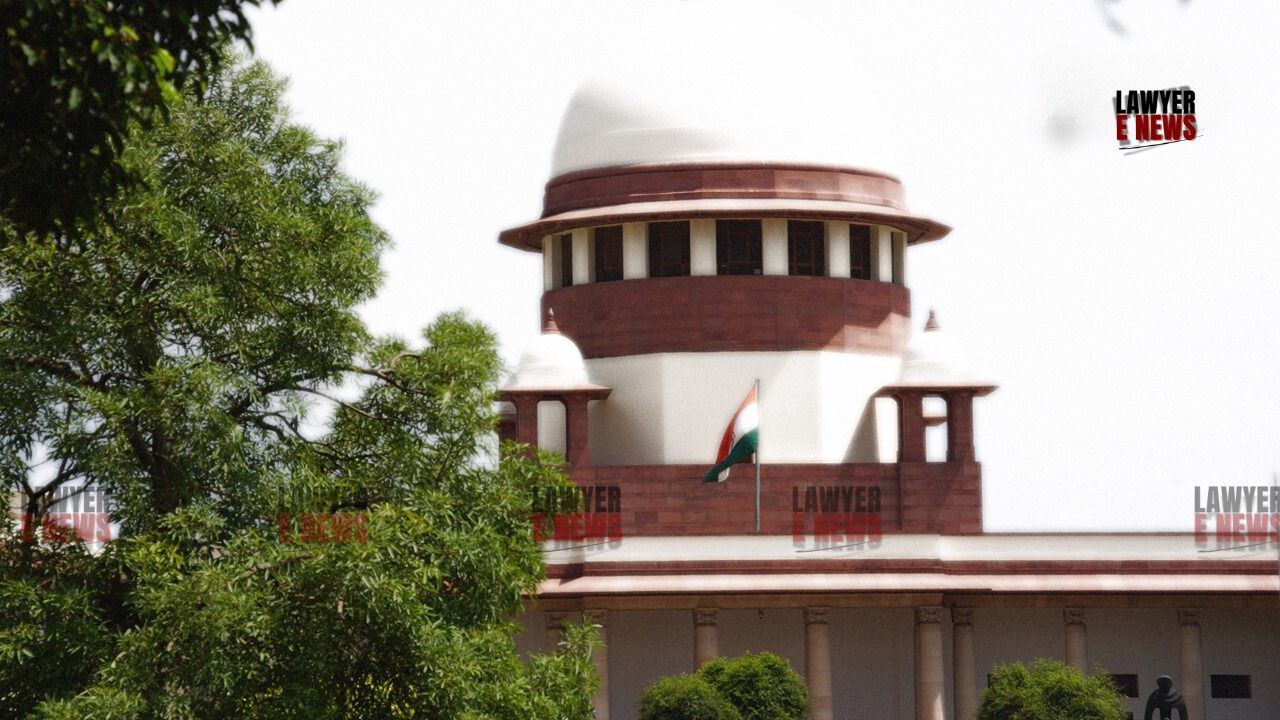-
by Admin
15 February 2026 2:36 AM



On October 17, 2024, the Supreme Court of India, in Sajeena Ikhbal & Ors. v. Mini Babu George & Ors., set aside lower court rulings and awarded compensation of ₹46,31,496 with 9% interest to the appellants—the widow, minor child, and parents of the deceased Ikhbal—who died in a road accident. The Court held that the car driven by the second respondent was indeed involved in the accident, overturning the prior dismissal of the claim by the Motor Accident Claims Tribunal (MACT) and the Kerala High Court.
The Supreme Court underscored the importance of reliable eyewitness testimony, even if such testimony had not been recorded during the police investigation. The Court ruled that PW-6, an eyewitness to the accident, was credible despite not being examined by the police, stating: "A witness who is otherwise found trustworthy cannot be disbelieved in a motor accident case solely because the police did not record his statement during investigation."
The case involved the tragic death of Ikhbal, who was knocked down by a car while overtaking a bus on his motorcycle on June 10, 2013. The appellants, comprising Ikhbal's widow, minor child, and parents, filed a compensation claim under Section 166 of the Motor Vehicles Act, 1988, alleging the accident was caused by the negligence of the car driver (respondent no. 2). However, both the MACT and the High Court dismissed the claim, ruling that the car was not involved in the accident.
The respondents argued that the deceased had lost control of his motorcycle while attempting to overtake the bus and that the car had no role in the collision. The trial court accepted this argument, and the MACT denied the claim for compensation.
The Supreme Court identified the central legal issue as whether the car driven by respondent no. 2 was involved in the accident, as alleged by the appellants. The case required the Court to reexamine the evidence from the lower courts, focusing on the principle of preponderance of probability. The appellants’ counsel argued that substantial evidence pointed to the car’s involvement, but the lower courts had misread the facts and applied an incorrect standard of proof, expecting evidence beyond a reasonable doubt, which is not required in civil claims.
The Mahazar report, which documented damage to the car, became a pivotal piece of circumstantial evidence. The car's front bumper, parking light, and grill were damaged, indicating its involvement in the accident. The Supreme Court concluded that this damage could not have been caused if the car had not been involved in the collision, dismissing the respondents' argument that the motorcycle had simply skidded and hit the car independently.
The Court further relied on the testimony of PW-2 (the bus driver), PW-3 (a shopkeeper near the accident site), and PW-6 (an eyewitness). PW-6 testified that the car had hit the motorcycle and then took the injured Ikhbal to the hospital. This testimony was consistent and remained unshaken during cross-examination, further reinforcing the appellants’ claim.
The Supreme Court criticized the lower courts for disbelieving the eyewitness (PW-6) solely because his statement had not been recorded during the police investigation. The Court emphasized that such an omission by the police does not render the witness's testimony unreliable. "The courts below have misguided themselves by applying the standard of proof beyond reasonable doubt, which is inappropriate in civil claims, particularly motor accident cases, where the test is preponderance of probability," the judgment noted.
In setting aside the lower court rulings, the Supreme Court granted the appellants compensation of ₹46,31,496 with 9% interest per annum from the date of filing of the claim petition. The amount is to be paid within three months, failing which the interest rate would increase to 12%. The respondents were ordered to bear their own costs.
Date of Decision: October 17, 2024
Sajeena Ikhbal & Ors. v. Mini Babu George & Ors.
